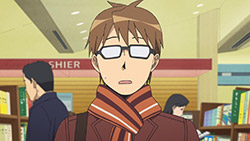 |
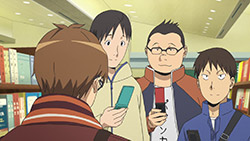 |
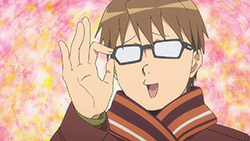 |
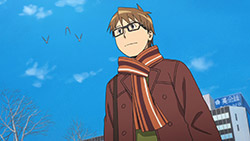 |
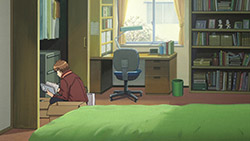 |
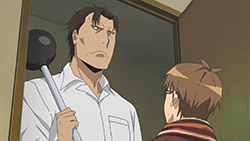 |
 |
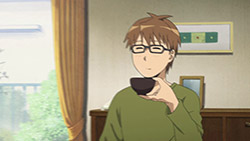 |
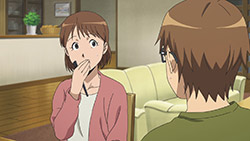 |
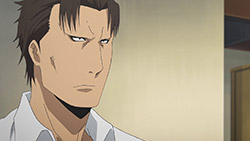 |
 |
 |
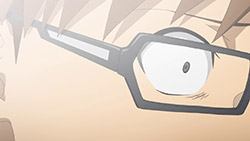 |
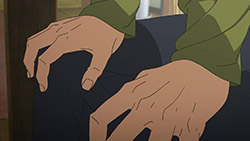 |
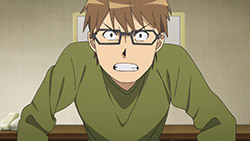 |
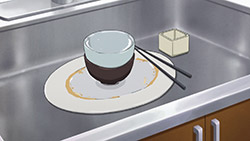 |
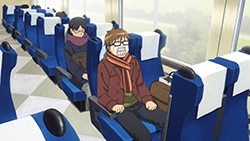 |
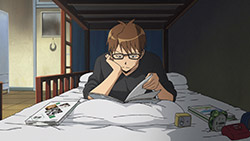 |
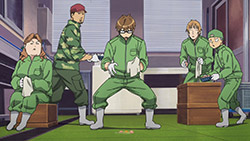 |
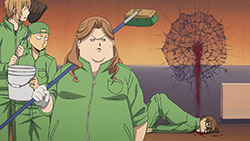 |
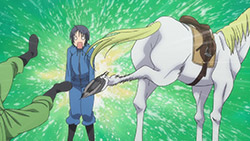 |
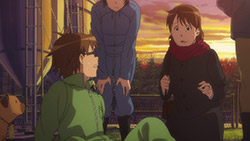 |
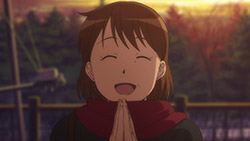 |
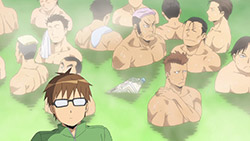 |
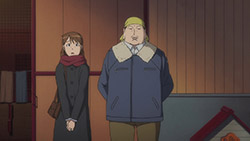 |
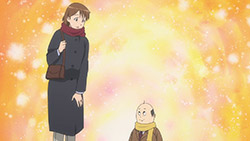 |
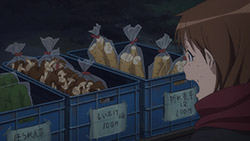 |
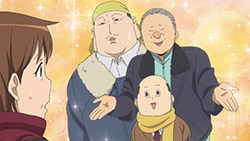 |
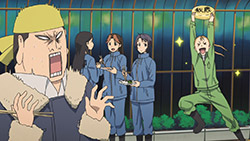 |
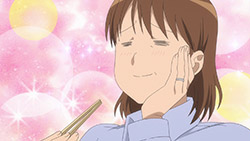 |
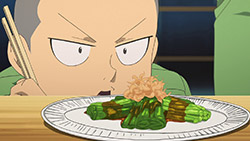 |
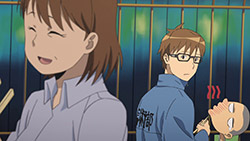 |
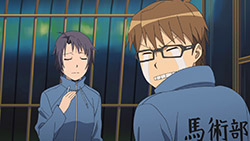 |
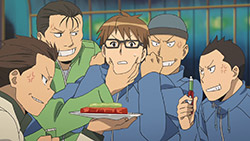 |
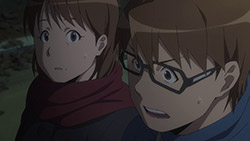 |
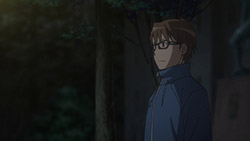 |
「何度でも」 (Nando Demo)
“Many Times”
That was a stellar ending – but surely, we had no reason to expect anything less.
Final episodes of really good anime can inspire a wade range of emotions in me. But I know I’ve experienced a truly special series when the dominant feeling is gratitude – only the very best shows, the ones that impact you meaningfully, can produce that. When it comes to Gin no Saji I can truly say that I’m glad this series exists – that it measurably made anime a better place, and contributed something of real value to the medium and indeed, something positive to the world at large. If you believe in Karma, Arakawa Hiromu and A-1 Pictures (and NoitaminA too, though I’ve been hard on it lately) score some major points here.
This was pretty much a textbook example of how to do an ending of an ongoing manga the right way. The three episodes leading up to the finale delivered incredible emotional power, and the last a reflective and wistful kind of benediction. Especially in a show like this that really tries to be about something, I can’t overstate the importance of such a coda – a chance for the audience to reflect right along with the characters on the meaning of what they’ve seen, and to appreciate the characters themselves one last time. So many shows rush headlong to the end, resolving the plot (and often not even that) in the final frames. Those kind of endings never feel satisfying to me even if they do manage to be conclusive.
I certainly wouldn’t have expected a conclusive ending for Gin no Saji – not just because the manga is ongoing, but because life is ongoing. Every day (except one) comes with a “Tsuzuku” at the end of it. Given the sort of series this is I’ll be very surprised if the eventual manga ending looks all that much different from this one. The sorts of issues the series has raised, especially in this arc – Mikage’s struggles to get into college, Komaba’s financial hardship and loss of his dream, Hachiken’s identity issues and conflicts with his parents – simply aren’t the kind that get neatly resolved. You don’t solve these sorts of problems – you cope with them and, hopefully, learn from them. And Gin no Saji is a rare bird indeed in seeming to truly understand that.
Hachiken’s trip to Sapporo was perhaps surprisingly low-key – it certainly felt that way after the time spent with Mikage and Komaba’s families, but that fits Hachiken’s situation. I was struck first by the reaction of his middle-school classmates after bumping into him at the station bookstore – they were surprised by how “normal” he seemed. Clearly being normal is something Hachiken has always struggled with as he’s tried to live out his father’s wishes for him. Yet his frustrations with his family could hardly be more normal – he’s going through a period where he’s trying to be an individual for the first time in his life, rather than the product of his parents’ ambition. And that, as anyone could tell you, is rarely an easy thing.
Initially, Hachiken thinks he’s lucked out by finding no one at home and that he might manage to escape with Shingo’s notebooks and never have to see his parents (and that’s a sad thing in itself). Of course we know that’s not going to happen, and their dinner together is incredibly awkward (as usual). His mother as always smiles and gamely tries to pretend nothing is wrong, and his father scowls and offers no attempts at social interaction. It’s easy to feel sorry for Hachiken’s mom – her reaction when Yuugo compliments her cooking is pretty heartbreaking – but I can’t get past the fact that she’s an enabler. By refusing to confront her husband she allows him to continue the behavior that’s driven two sons away from her, and by that measure she has to take some of the blame upon herself.
Hachi-kun really tries gamely here. He’s learned from his experiences with Aki and Komaba, and gained an appreciation for his parents’ perspective and what they’ve sacrificed for him. It’s a step forward for him to try and contain himself, and I like the analogy he uses to describe Aki’s dream – like a car with one wheel missing. Good grades, money, the dream itself – whatever it is, most adolescents (and many adults) are missing that fourth wheel, and that’s where we need to rely on others to help us find it. But when his father mocks his interest in helping Aki by asking “So – someone who failed in his studies is qualified to help someone else with theirs?” – Yuugo finally and understandably breaks. Is he like livestock, which gets sent to the slaughterhouse at the first sign of injury or illness? But then, even horses get another chance if they miss a jump – so is he even lower?
Tamako isn’t entirely wrong that there’s an element of personal redemption driving Hachi to try and help Aki, but I think the case is overstated. He’s genuinely doing this to help her – not least because he likes her romantically, of course, but also because he truly wants to help her achieve her dream. He dutifully puts his dishes in the sink and thanks his mother before storming out of the house – showing her more respect than his father shows him – but storm out he does. There’s a real lesson about empathy here, as there often is with Gin no Saji, and Hachiken has learned it. From his own failure, he’s become more tolerant of failure in others – and even grudgingly, with agonizing slowness, himself. And that’s been the hardest lesson so far for Hachiken to learn.
I certainly respect the fact that Hachi’s mother came to the school to see for herself what kind of life her son was leading – though by doing so she once again allows her husband to persist in his unbending and harsh ways unchecked. It’s important for Hachiken, though, to have at least one parent with an appreciation for the fact that he’s now his own person. “I can take anything” he tells her after she apologizes for lying about his dad praising the bacon he’d sent, “so don’t lie anymore.” He’s overstating the case, of course, but he’s trying to make a larger point. And in fact, this new life Yuugo is leading is a reward – coming to Ezonoo was the first major decision he took himself, independently of his parents’ wishes. He may not know what his dream is yet but he has friends, and interests he’s passionate about, and he’s earned the trust and respect of those around him. Sad as it is in a way, Ezonoo is a much healthier environment for him to grow up in than his own house – and that’s why Hachiken has grown so much since he arrived.
Just what the future holds for Hachiken is of course unclear – indeed “the possibilities are endless” as Yoshino (herself contemplating going to France to study cheesemaking) exclaims. That’s what being sixteen is all about – in that way, this open ending feels very much like the ending of the Hyouka anime to me. If you miss a jump, you can jump again and try to get it right – everyone fails sometimes, and it’s the response to the failure that matters far more than the failure itself. Stories like this one shouldn’t conclude with possibilities being eliminated, but rather expanded – because this is the time in a person’s life when there are a dizzying number of roads from which to choose.
What the future holds in store for Gin no Saji isn’t entirely clear either. The manga continues to be absurdly popular, though Arakawa-sensei doesn’t update it with unfailing regularity given her family situation and the fact that she’s also working on illustrating Arslan Senki. But the anime isn’t a big seller on disc, and perversely, the popularity of the manga may work against the anime here – it’s so popular in its own right that it doesn’t really need the anime to drive sales. If anything Gin no Saji seems like a perfect fit for theatrical anime movies – fans of this series are more likely to be those who’ll spend ¥1800 on a movie ticket than ¥10000 on a single Blu-ray or DVD. Manga is a medium much more commercially receptive to this sort of story than anime – as witness the fact that in the last week its two biggest prizes went to Sangetsu no Lion (the Tezuka Cultural Prize – which Silver Spoon won last year) and Otoyomegatari (the Manga Taisho Award), two strong-selling series that would likewise likely struggle to move discs.
As I’ve said before, I truly don’t think it’s overstating the case to say that Arakawa-sensei has done a public service with this series. In addition to a beautifully-written and utterly universal coming-of-age tale, she’s also told the story of a lifestyle that’s largely ignored by mass media these days, both in Japan and abroad – and it’s a story people really should know. To tell a story that’s both highly personal and universally relatable is a rare gift, and Arakawa has achieved it here. I give full credit to A-1 and to both directors – S1’s Itou Tomohiko and S2’s Deai Kotomi – for bringing to life in a way that captures the warmth, humor and pathos of the original. Thank goodness for Gin no Saji and series like it, rare as they are – and sincere thanks to the creators who bring them to us. A world with such stories in it is surely a better place.
ED Sequence
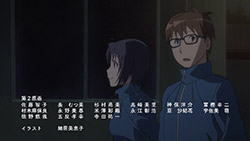 |
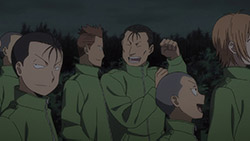 |
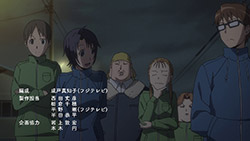 |
 |
 |
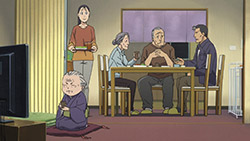 |
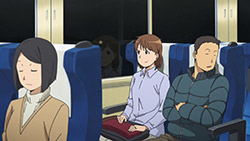 |
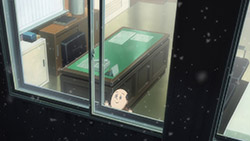 |
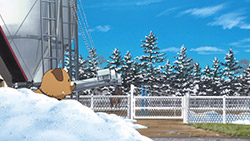 |
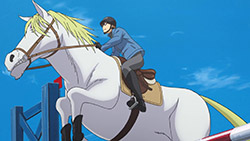 |
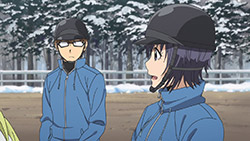 |
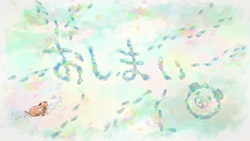 |

One of the best series of 2013-2014. Hiromu Arakawa is one of my favorite writers/artists. Whether it be a fictional or realistic setting she is able to make everything hit so close to home. I just love how real this series has been. There are no deus ex moments, no faulty anime logic etc. Everything that this show touches on happens often in the real world and it brings up issues that we as humans never even think about sometimes. The morality of raising animals as food (may pork bowl rest in peace!) was one that i really found myself being perplexed by. It’s not a pretty business but it’s how things go regardless of how wrong it may seem at times. This was also very informative and gave me a new appreciation for farm life as well. I always love shows that can make you want to part of such an experience yourself.
Regarding the episode Hachiken’s mom is actually pretty awesome. She’s one of those submissive mothers who never really questions the husbands decisions since he probably pays most of the bills with his job. I’m not sure what she sees in him but maybe that’ll be elaborated on later. Her visiting Hachiken is probably one of the only times she’s be able to actually cut loose because of how much of a downer her husband is. But i think seeing Hachiken stand up to him might have in turn given her more courage to stand up to him too one day. The experiences Hachiken has gone through have turned him into someone who can give strength to anyone he’s around whether he’s aware of it or not. Truly one of the best developed characters i have ever seen. I’ll truly miss this series but i still wouldn’t be surprised by a sequel later down the line since the anime has came pretty close to catching up to the manga. Even if the manga is very popular in it’s own right i’m sure that the anime boost still very effective for it which sometimes is the only reason a studio needs to continue a series.
Love love love la love me…
This will go down as one of my favorite animes of all time… It’s just… just… just…
I have no idea how they fit 70+ chapters in just 22 episodes and still made it work, but…they did it.
Hopefully once the manga wraps up, we can get more seasons of this. Ending here leaves so much up in the air, but that’s anime for ya.
My two favourite anime of recent times ending within a week of each other. Well people and the stories they tell have to move on, as will I.
I’d have to go back to 08-09 to find a time when I so looked forward to a Noitamina series (with the possible exception of Spring 12, the only time that the two-show format really worked for me).
As for the final episode, it fits the tone of the series. No lesson is complete without a plenary to re-cover the main points.
It’s funny how I watch anime to escape reality but as I watch Gin no Saji, reality captures me. And it’s not a bad thing.
Truly grateful to the anime Gin no Saji. (Now off to read the manga…)
Damn. Near. Perfect.
….and the ‘near’ is debatable.
Sad to see this show end. I’m going to miss the characters, the animals and Ezonoo.
i was shocked. I DIDNT THINK IT’D END THIS QUICKLY
Amazing. For most Asian cultures, I believe, it is almost unthinkable to talk back to your father, especially if you’re a teen. Major props to Yuugo here.
Full Metal Alchemist is/was my favorite anime– after the first series, I read the manga, only to be delighted with a remake that ended almost simultaneously with its source material. When I found out the that another of Arakawa’s works was going to be made into an anime, I had no second thoughts about watching it. Now… what chapter should I start reading at? Are there some omitted materials that did not make it into the anime that merits a full re-read of the manga? Though I might do so since I am such a fan :))
Gin no Saji sure gives FMA a run for it’s money on being my favorite anime…
On another note, I’m pretty stoked that there’s a 90% chance for me to go to Sapporo in a few months. I hope I’ll run into a few interesting things.
Please oh please tell me they are gonna do Season 3 in the summer or fall season.
I want a third season…now.
Don’t I wish there would be a third season soon. Unfortunately, the manga is only up to the end of the winter semester and the start of their second year. Just not enough material IMO. This is so good I want it done right and done respectful of the source material. I never thought I would have an anime that would exceed Toradora as my favorite, but this has at least tied it in my heart. The withdrawal symptoms are going to be brutal.
Enzo, please pardon me for going off-topic, but did you quietly drop coverage of Golden Time? As I see no sign of you saying that you’ve dropped it. At least a series summary now that it’s over?
While I can guess as to why you’ve suddenly gone lukewarm over Golden Time, as I myself have found the drama relying on one too many Deus Ex Machinas, stretching one’s suspension of disbelief.
Still, a little communication goes a long way, no?
HELLO?
Can some mods please at least answer the query? Is Golden Time dropped or is it not? Don’t leave people hanging.
It was dropped as of 1/17.
“1/17: Sorry Golden Time fans, but no writers were interested in picking up the show. It has been dropped”
For future reference, the schedule lists all updates to coverage. You’ll see Golden Time listed on the previous winter schedule.
Thank you for the reply.
But just where on earth did you place that announcement anyway? I looked everywhere on all possible Golden Time entries and nowhere does it say that.
Ditto for your Announcements page (which is criminally underused for that matter)
https://randomc.net/announcements/
And just how long did you guys even put up that announcement on the 17th of January anyway? Surely you should put it as a sticky announcement to make sure as many people could see them for as long as possible, like say one week.
In regard to the Author’s family situation… She’s given birth, again, and this has slowed progress of the manga by quit a bit.
In any event, if the animator wants to do more adaptation of this story, it’s currently at a natural stop again with the ending of the Winter chapters.
Thus far the anime season break down to:
Spring/Summer Chapters (Season 1)
Autumn (Season 2)
Winter is slightly longer than everything previously so there’s enough material for 2 cur.
Not sure how you arrived at that. The first two cours covered 70 chapters of the manga and there are 97 (not including the history story) through the end of Winter that I’m aware of. That means they’ve done 35 chapters a season and there are 27 left for winter. Now I don’t know the page count, but that seems short for even one cour given what they’ve done before. Are you aware of more that have been released in Japan?
Oh my god, Gin no Saji. I’ll miss you so much. (/□\*)・゜Aside from Mahou Koukou and Mekakushi Dan, I don’t have anything to look forward to in Spring. Wait, there’s also a GnS live action film coming soon this year, so maybe the good guys win after all! Of course, a third season doesn’t hurt. Not at all! (If it means I get to see Alexandra…)
I legitimately started blubbering when Hachi stood up to his father, because… man. After rewatching past episodes where he gets repeatedly knocked down by his father’s brutal honesty and jerkass behaviour, this was really a CMoA. And I’m glad to see that Hachiken is patching things up with his mother, slow as a process that may be. Also, did anyone drool over the food porn in this episode? No? Well, I guess it’s just me…
On a side note, one thing I absolutely adore about Hiromu Arakawa’s works is how most established couples are Happily Married (trope!) – just look at Izumi Curtis/Sig, the Hughes, and even the Bradleys – evil as King Bradley
and that infante terriblemay be. So I have to say I’m slightly disappointed by the lack of interaction between Hachi’s parents, but it does make me very interested for any possible elaboration on their relationship.I’m very glad I read the manga before watching the second season (: first season definitely hooked me into watching it but I’m glad that the anime stayed true to the manga in the end <3 I'm really looking forward to what will happen next! This has definitely grown to be one of my favorite series because its diversity emotionally and content wise! Also I really love the review since you covered basically everything that happened (:
This was a really great ending episode for the second season. It helped to show how much Hachiken grew and is understood by peers. It even culminated in him finding more even footing towards his parents, bonding more and identifying with his mom while getting to say what he always wanted to say to his dad (who never pulls punches in hitting his weak spots that hit some dark truths in Hachiken). The ending even leaves some room to speculate what might show up in a third season should the chance that it gets picked up for one occurs.
I do wish the anime had put in some of Hachiken’s parents other scenes and reactions like in the manga, chiefly why Mr. Hachiken was holding a plunger and Mrs. Hachiken visiting Ezonoo. I thought that there’s a kind of plot correlation to how the more Hachiken grows in confidence and empathy, the more his parents seem less threatening through dark and shocking humor. I do agree that Mrs. Hachiken does enable her husband in providing that tense and stressful atmosphere, but I also think that she’s more of a Hachiken parallel and that she might be in the same boat as her younger son; the “complimenting one’s cooking” discussion made me think that way because her saying that her husband doesn’t talk about her cooking or wanting to assure Hachiken with the text carried similar tones to how Hachiken wanted to have his efforts be recognized as being sincere accomplishments rather than success.
What I got out of the ending the most is that you can really grow into the person you want to be when you remove yourself physically and mentally from the place/people that hurts you, including focusing your present actions into things you want to do and not as a reflection of what you did in the past. Hachiken does genuinely want to help Mikage, but I think that Tamako talking about his pride is a way for her to remind him to leave what happened with his parents behind at his home and not bring it with him as a lurking motivator for his present actions, especially when it involves other people. By focusing on the goal “I want to help Mikage because I want to” is to get him to slough off his dad’s influence and building/rebuilding more positive relationships with people who does understand him and support him. His friends and teachers help to give him that opportunity to reconcile himself and his relationships with his family, and that’s really something valuable to learn from for kids like Hachiken.
I was a little disappointed that Misako’s culture shock when she visited the school wasn’t shown. Is it wrong to kind of have the hots for her?
As for the show in general, everything has already been said. Season 3 soon please.
*sniff* I’m seriously almost crying because it’s over. Yet like every other episode, I still have a really satisfied smile on my face.
It’s funny how an anime so normal, can be so special. ^_^
god if there’s one thing i love about arakawa, it’s that she’s merciless and doesn’t pull any punches. komaba is still at the bottom working his way up, no “just kidding” bullshit or “actually, he’s a titan”. i loved everything about komaba’s character and story, and hope that while he’s pretty much written off, he may reappear once again with his head held high.
i’m going to miss this series. i’ve been putting off watching it till spring break but i now realize what a sad mistake that was; gin no saji turned out to be one of the most awesome animes of the season. what’s a really surprising quality about this anime is that it can really get you fired up. the irony in this is that gin no saji is not a blood-pumping sports anime like hajime no ippo or kuroko no basuke, but instead a highschool SoL with a agricultural backdrop!
arakawa never fails at making every side character feel complete, i can feel yugo’s mother echoing her son’s dynamic changes. hachiken manages to find courage in the most daunting situations and watching his outburst inspire minor changes in her behavior was a nice experience. i also love how yugo caught that misako was just trying to cheer him up in words she’d like to hear. when every character’s problems are critically analyzed, it truly makes it all the more easier to be convinced of the authenticity of arakawa’s world.
i wish for gin no saji’s continuing success and hope to see it air again soon. if anything’s for sure, i’m going to catch up on the manga.
I don’t read the manga, so I don’t know what’s happening over the fence, but I really can’t imagine Hachiken’s profession (dream, whatever you may call it) being other than a teacher.
This isn’t a spoiler, but even more than being a good teacher, Hachiken is a natural leader who leads by example. That’s been shown multiple times from the pizza to the festival. People come to him for leadership and his organizational skills. He doesn’t even realize yet how good he is.
So please answer me this,will there be Season 3 of Gin No Saji??
will there be Season 3 of Gin No Saji??